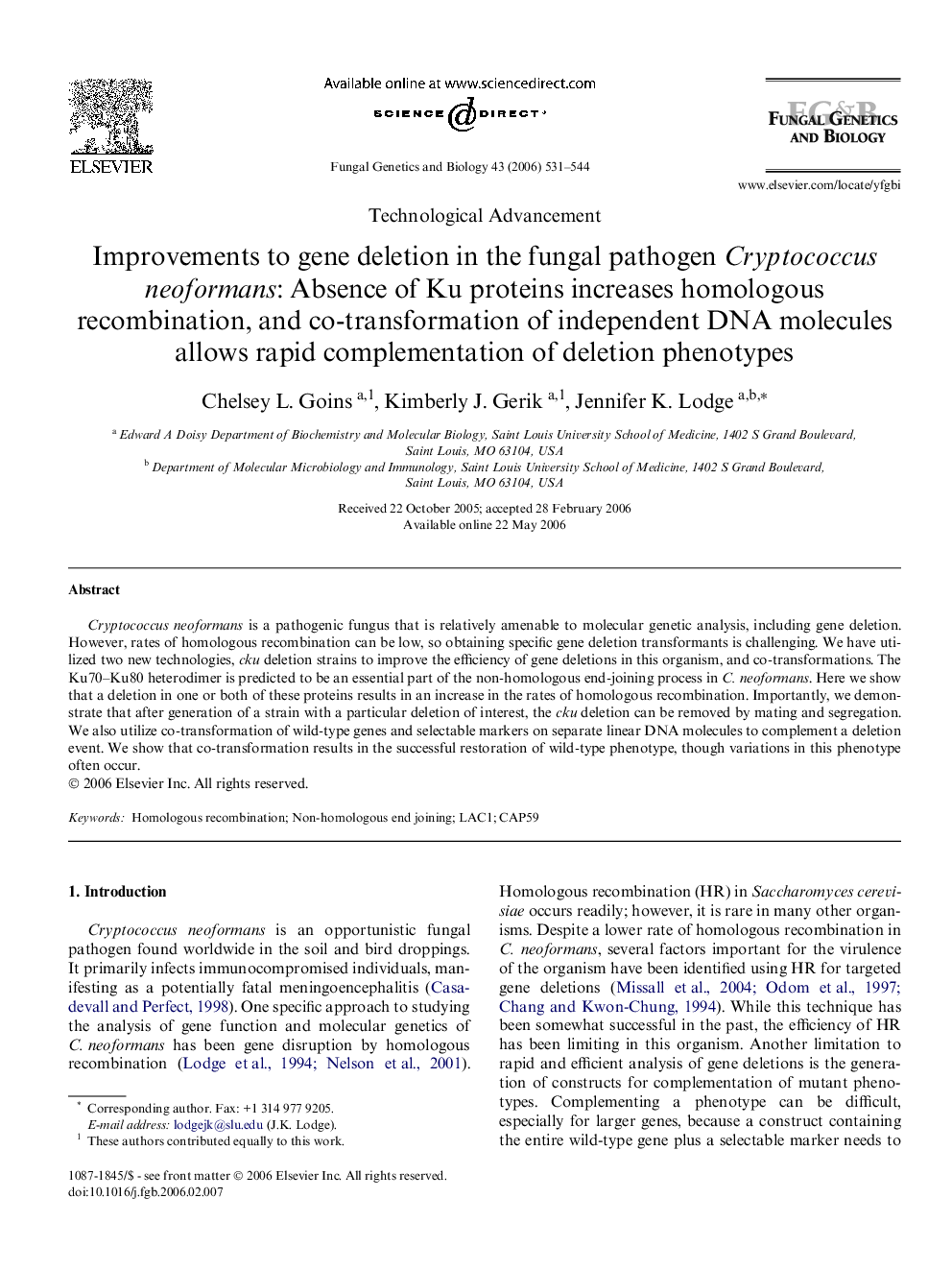| Article ID | Journal | Published Year | Pages | File Type |
|---|---|---|---|---|
| 2181779 | Fungal Genetics and Biology | 2006 | 14 Pages |
Cryptococcus neoformans is a pathogenic fungus that is relatively amenable to molecular genetic analysis, including gene deletion. However, rates of homologous recombination can be low, so obtaining specific gene deletion transformants is challenging. We have utilized two new technologies, cku deletion strains to improve the efficiency of gene deletions in this organism, and co-transformations. The Ku70–Ku80 heterodimer is predicted to be an essential part of the non-homologous end-joining process in C. neoformans. Here we show that a deletion in one or both of these proteins results in an increase in the rates of homologous recombination. Importantly, we demonstrate that after generation of a strain with a particular deletion of interest, the cku deletion can be removed by mating and segregation. We also utilize co-transformation of wild-type genes and selectable markers on separate linear DNA molecules to complement a deletion event. We show that co-transformation results in the successful restoration of wild-type phenotype, though variations in this phenotype often occur.
